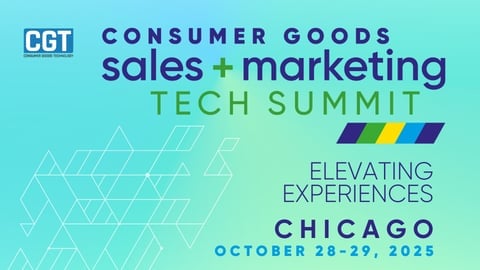How Bic, Kimberly-Clark Use AI to Democratize Data, Reshape Sales & Marketing Teamwork
Marketers are using AI and other technologies to dismantle siloed functions and reshape collaboration across organizational teams.
As part of this, consumer goods companies are employing generative tools, democratizing data and upskilling employees, using AI as a transformative tool, according to Karen Schwartz, global VP for Bic's blade excellence category, and Josh Blacksmith, Kimberly-Clark's senior director of global integrated marketing and experiences.
The pair shared insights during a panel, moderated by Conair's SVP and global CIO John Harding, at CGT's Consumer Goods Sales & Marketing Tech Summit, held Oct. 28-29.
Also from CGSM: How Southern Glazer's bridges the BevAlc data gap
The Role of AI
For Schwartz, the promise of AI lies in its ability to break down silos and align teams at the same starting point.
“AI helps us start from the same place,” she said. “We talk about being business-led, tech-enabled. So if we can identify what the challenge is from a sales, marketing or business perspective, we can then partner with our IT team to figure out the right tools to help solve that, and to ensure we’re using the tools safely and correctly.”
AI enables sales and marketing teams to work together “whether that’s trying to improve our placement on Amazon or optimizing content to get us up in the search results to outperform in a category,” she said.
AI also plays a role in data democratization, giving marketing and sales teams equal access to insights compiled from decades of consumer research and development data, according to Blacksmith.
“We created [a process] that allows these teams to go in and query decades worth of data from a single source of truth," he said. "Redundancies are reduced, and we’re able to ensure that critical data is centralized in a place that everybody can learn from and scale more immediately.”
He believes AI is also transforming brand discoverability and marketing performance measurement. In a pilot program, his team uses AI to test and refine thousands of search prompts across digital platforms, helping Kimberly-Clark's brands to improve visibility within the world of agentic commerce.
While AI can deliver scale and speed, intentionality is fundamental, cautioned Blacksmith.
“Without clear roles and business outcomes, you risk creating seven versions of the same deliverable. Technology doesn’t create alignment, people do,” he said.
A Culture Shift
A recurring theme of change management emerged, as panelists acknowledged that younger employees tend to embrace AI experimentation more readily and don’t see it as replacing their value, while others may feel uncertain or even threatened by it.
They agreed that the solution lies in upskilling and empowerment.
“We have to make AI less intimidating,” Schwartz noted. “Once teams see that it makes their jobs easier and not obsolete, they begin to lean in.”
There should also be structured training in prompt engineering, data fluency and creative iteration, along with continued celebration of human ingenuity and creativity.
“We still need the human touch for tone and authenticity,” said Schwartz.
Ultimately, success with AI isn’t solely about efficiency, but evolution. AI-enabled wins in marketing and sales will belong to the organizations that can balance automation without losing human artistry.
“Efficiency is only part of the story," said Blacksmith. "The real power of AI is in freeing up time and resources so teams can do what was once impossible.”






